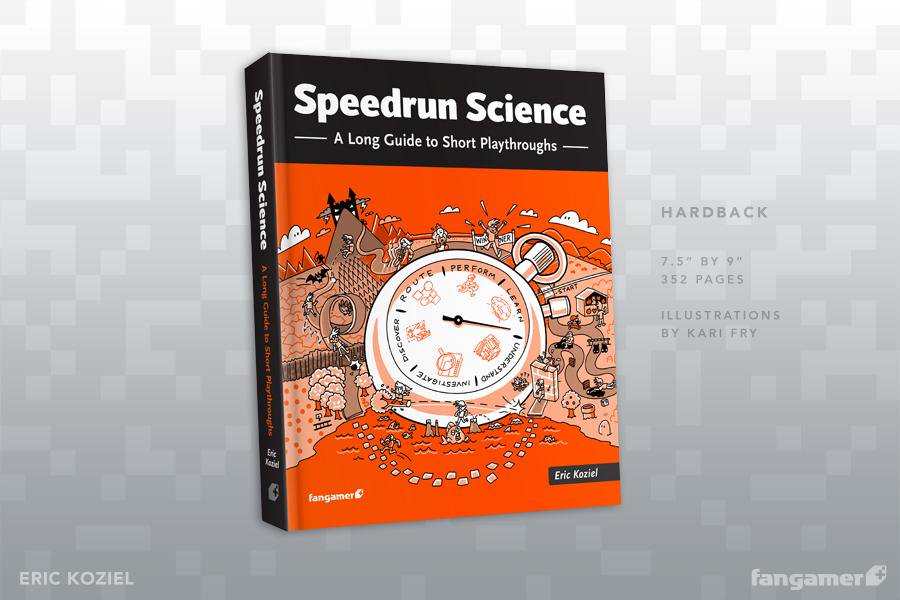Dragster
The Most Infamous 6 Milliseconds
 Over the course of writing Speedrun Science, I started looking for compelling stories of early speedrunning. One particular story involving Atari 2600 title Dragster was often cited as among the first recorded speedrun instances. As the story goes, a player managed to demonstrate a time that exceeded what the developers believed was possible. Using a special technique that the developers hadn’t considered, the player was able to best their computer models and achieve a time of 5.51. This seemed like the perfect illustration for early speedrunning: a player pushes the limit of a game beyond the developer’s vision. Great, now I just had to identify what the player did so I could describe it in more detail for the book.
Over the course of writing Speedrun Science, I started looking for compelling stories of early speedrunning. One particular story involving Atari 2600 title Dragster was often cited as among the first recorded speedrun instances. As the story goes, a player managed to demonstrate a time that exceeded what the developers believed was possible. Using a special technique that the developers hadn’t considered, the player was able to best their computer models and achieve a time of 5.51. This seemed like the perfect illustration for early speedrunning: a player pushes the limit of a game beyond the developer’s vision. Great, now I just had to identify what the player did so I could describe it in more detail for the book.
However, details were scant or conflicting on the actual method the player used. This led me to dive in deeper to uncover the real strategy applied… and in the end, determined that no such strategy existed. The summary is that even after fully disassembling the game’s code and developing a spreadsheet model of the game’s speed system, I concluded that the fastest possible time was in fact 5.57. I published my initial findings on reddit looking for peer review, published a tool-assisted speedrun of the best possible time, and examined other historical media for better context and clues. In the end, all signs pointed to the original Dragster story being fabricated, with almost no verifiable evidence in favor of it.
The whole saga ended with the player’s 5.51 time being officially debunked, but it also served as an interesting case study in optimization theory and experimentation. I produced a number of videos relating to the investigation and Dragster itself, including a discussion of speed theory, Dragster tutorial, spreadsheet entry tutorial, and even the first recorded 5.57 completion, shown below (warning: language). To hear me tell the full story with some more detail, you can check out the extended clip.
 Way back in 2014, I got the idea in my head to write up a comprehensive guide to speedrunning. Things started with just a few scattered articles, including my What is a Speedrun? discussion, but the core concept evolved over the years. The comprehensive guide was still the cornerstone, but I also started to research and conceptualize aspects of speedrunning’s history and philosophy. Along the way, I found excellent production partners at Fangamer, and interviewed a number of relevant gaming personalities for their perspectives and experiences. Finally, in April 2019, Speedrun Science launched as the first major speedrunning book to very positive reviews. Pick up a copy today from Fangamer!
Way back in 2014, I got the idea in my head to write up a comprehensive guide to speedrunning. Things started with just a few scattered articles, including my What is a Speedrun? discussion, but the core concept evolved over the years. The comprehensive guide was still the cornerstone, but I also started to research and conceptualize aspects of speedrunning’s history and philosophy. Along the way, I found excellent production partners at Fangamer, and interviewed a number of relevant gaming personalities for their perspectives and experiences. Finally, in April 2019, Speedrun Science launched as the first major speedrunning book to very positive reviews. Pick up a copy today from Fangamer!